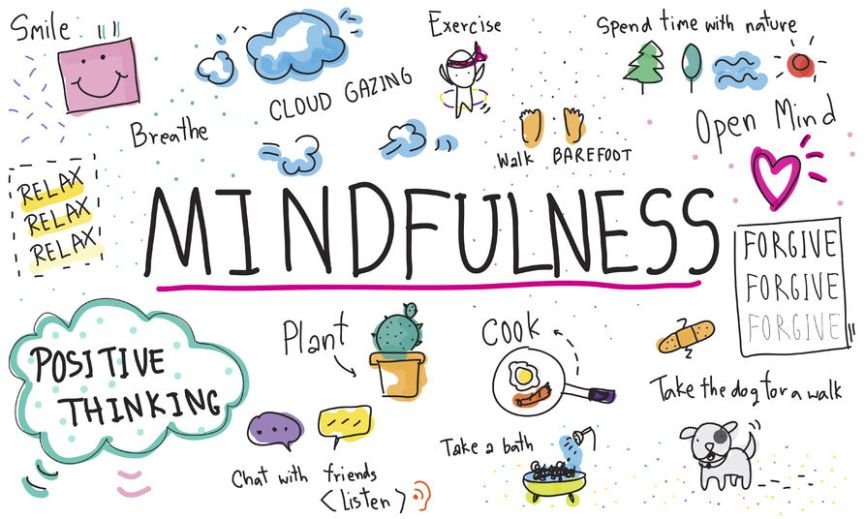Pay Attention to The Present Moment (Mindfulness)
It can be easy to rush through life without stopping to notice much. Paying more attention to the present moment – to your own thoughts and feelings, and to the world around you – can improve your mental wellbeing.
Some people call this awareness "mindfulness". Mindfulness can help us enjoy life more and understand ourselves better. You can take steps to develop it in your own life.
What is mindfulness?
Mindfulness involves paying attention towhat is going on inside and outside ourselves, moment by moment. It's easy to stop noticing the world around us. It's also easy to lose touch with the way our bodies are feeling and to end up living "in our heads" – caught up in our thoughts without stopping to notice how those thoughts are driving our emotions and behaviour.
An important part of mindfulness is reconnecting with our bodies and the sensations they experience. This means paying attention to the sights, sounds, smells and tastes of the present moment. That might be something as simple as the feel of a banister as we walk upstairs. Another important part of mindfulness is an awareness of our thoughts and feelings as they happen moment to moment.
How mindfulness helps mental wellbeing
Becoming more aware of the present moment can help us enjoy the world around us more and understand ourselves better. When we become more aware of the present moment, we begin to experience a fresh things that we have been taking for granted. Mindfulness also allows us to become more aware of the stream of thoughts and feelings that we experience, and to see how we can become entangled in that stream in ways that are not helpful. This lets us stand back from our thoughts and start to see their patterns. Gradually, we can train ourselves to notice when our thoughts are taking over and realise that thoughts are simply "mental events" that do not have to control us. Mindfulness can help us deal with issues more productively. We can ask: "Is trying to solve this by brooding about it helpful, or am I just getting caught up in my thoughts?"
Awareness of this kind may also help us notice signs of stress or anxiety earlier and deal with them better.
Mindfulness-based therapies are recommended by the National Institute for Health and Care Excellence (NICE) as a way to treat less severe depression.
NICE also recommends that employers make mindfulness available to all employees, to support mental wellbeing at work.
Ideas...
- Practice deep breathing
- Use all your senses: What can I see, smell, touch etc
- Practice Gratitude
- Keep a journal
The HEADSPACE app is available to download to help you practice mindfulness.






